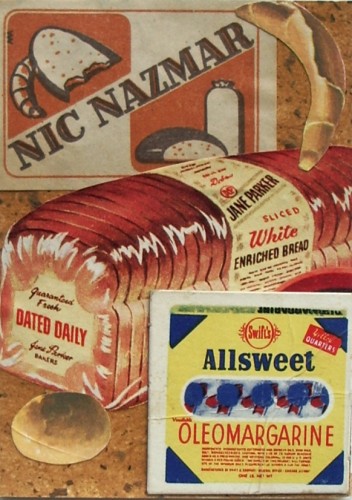
What a transition: to go from the wonder and splendor of the preceding verses—thoughts of heaven, of God’s hallowed name, of His beautiful kingdom and perfect will, to this: what concerns us. The transition is almost abrupt, moving from things above to things below, but—and our understanding of the Gospel is of great importance—not surprising: the very things that constitute our needy state (hunger and debt) are truly met and given to us by the awesome God we’ve just spoken of.
Give us This Day Our Daily Bread
 Bread is bread is bread. The Greek word typically translated and understood as “daily”, has within it the idea of “necessary for existence.” In fact, instead of “daily” you could say “necessary for existence.” If you had to list out what was necessary for existence (necessary to live here and now), I’m quite sure bread (and water) would be well at the top of the list. That is to say, there’s nothing terribly “spiritual” about this petition. Bread means bread, and implies the broader scope of all that we need (here and now) to exist. Thus, this is the humblest petition because of its lack of spirituality, yet constitutes the very heart of the prayer. If prayer is the act/event by which we encounter God, then this petition (daily bread) gets at the core of our need and God’s provision.
Bread is bread is bread. The Greek word typically translated and understood as “daily”, has within it the idea of “necessary for existence.” In fact, instead of “daily” you could say “necessary for existence.” If you had to list out what was necessary for existence (necessary to live here and now), I’m quite sure bread (and water) would be well at the top of the list. That is to say, there’s nothing terribly “spiritual” about this petition. Bread means bread, and implies the broader scope of all that we need (here and now) to exist. Thus, this is the humblest petition because of its lack of spirituality, yet constitutes the very heart of the prayer. If prayer is the act/event by which we encounter God, then this petition (daily bread) gets at the core of our need and God’s provision.
The petition finds God and human radically brought together in the most matter-of-fact way. It is the world in which we actually humans live. Christ is implying that God is actively concerned with our bodily existence, with (important but) tangible and fleeting things, with the “profane and completely human” (Ebeling). The very things that we often think to be too below Him (bills, food, drink, day-in-day-out realities) are given real and surprising status. Our God is not merely a Sunday-only or quiet-time-only God; He’s the God of nitty-gritty, day-to-day, demanding, mundane, unexcited realities. God is quite aware: care for the soul, while important for the soul, does not fill our bellies. Bread does. To live we need to eat and drink.
With that said, there are three things that the bread itself reminds us of (and here I credit Gerhard Ebeling). This bread reminds us that:
We are dependent on ‘bread’—we hunger and are in need (and this does constitute much of human life), and no matter how independent we think we are, it takes a single pang of hunger to remind us that we need something external to ourselves. Hunger brings us down from our pedestal, reminding us that our life hangs by a slender thread. We are no stronger than our next meal.
We are dependent on our fellow man—we are beggars at bottom (Luther)–spiritually but also materially—and fully dependent on those around us. We must take note, it is “Give us this day our daily bread” and not “me” and “my;” we eat together and not alone (this is a great blessing) and we receive from the hands of others as they pass the bread to us or make it for us and we offer to others from our hands.
We are dependent on God—we pray daily, for our daily needs—while we are wonderfully created creatures, we are impotent apart from God, even when it comes to these very matter-of-fact necessities. “The humblest of everyday experiences teaches that all our doings are subject to the inescapable condition: if God wills and we are spared.” (Ebeling) We depend on God for our very physical sustenance, even if we would like to think otherwise; and our God is very concerned with those very physical needs.
Therefore I tell you, do not be anxious about your life, what you will eat or what you will drink, nor about your body, what you will put on. Is not life more than food, and the body more than clothing? Look at the birds of the air: they neither sow nor reap nor gather into barns, and yet your heavenly Father feeds them. Are you not of more value than they? And which of you by being anxious can add a single hour to his span of life?And why are you anxious about clothing? Consider the lilies of the field, how they grow: they neither toil nor spin, yet I tell you, even Solomon in all his glory was not arrayed like one of these. But if God so clothes the grass of the field, which today is alive and tomorrow is thrown into the oven, will he not much more clothe you, O you of little faith? Therefore do not be anxious, saying, ‘What shall we eat?’ or ‘What shall we drink?’ or ‘What shall we wear?’ For the Gentiles seek after all these things, and your heavenly Father knows that you need them all. But seek first the kingdom of God and his righteousness, and all these things will be added to you. (Matt. 6:25-33)

COMMENTS
Leave a Reply













